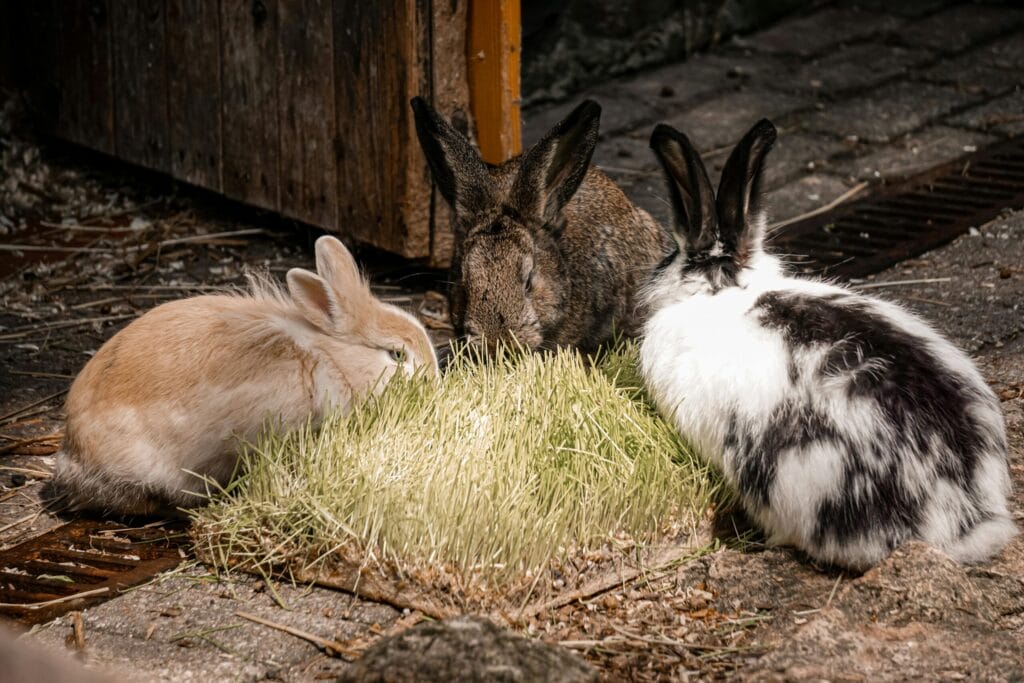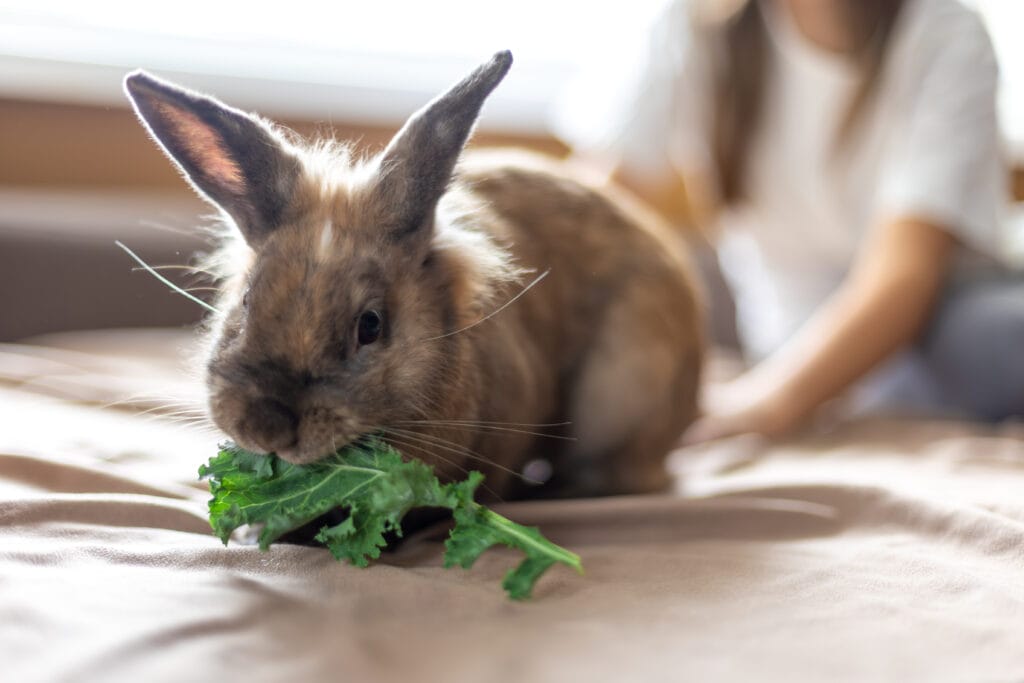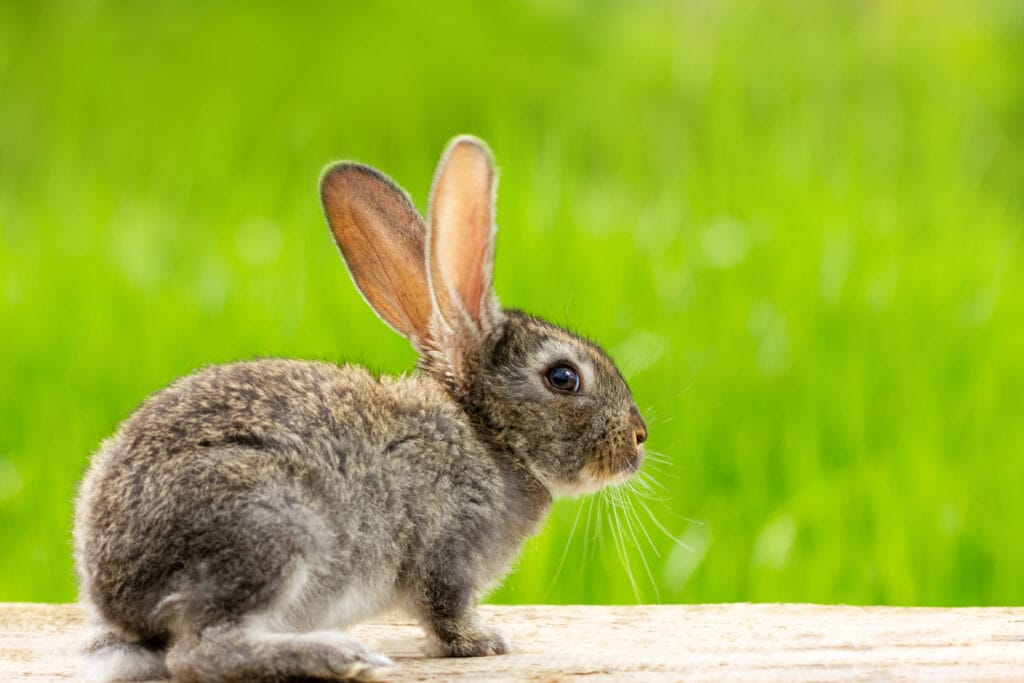As a rabbit owner, you want the best for your furry friend. One of the most critical aspects of your bunny’s well-being is their diet. You likely already know that hay is the main component of a rabbit’s diet, but with so many types available, you may wonder: Can bunnies eat orchard grass?
Orchard grass is a popular variety of hay known for its sweet aroma and soft texture. It’s often a favourite among rabbits for its mild flavour and digestibility. But is it safe and beneficial for your bunny? In this post, we’ll break down everything you need to know about orchard grass—including its health benefits, the correct portion sizes, and how to safely introduce it into your bunny’s diet.
By the end of this guide, you’ll understand why orchard grass is a great option for your bunny and how to incorporate it into its diet for maximum health benefits.
What is Orchard Grass?
Orchard grass (Dactylis glomerata) is a cool-season grass that grows in meadows and fields. It’s a soft, sweet-smelling grass that bunnies enjoy because of its tender texture and mild flavour. This grass is harvested while young, so it’s smoother and more palatable for rabbits than some coarser hays like timothy or meadow hay.
Orchard grass is an excellent source of fibre and can be a great addition to your bunny’s diet. Unlike other hays, it’s known for being particularly easy on a rabbit’s sensitive digestive system. This makes it an excellent choice for rabbits of all ages, from babies to seniors.
Can Bunnies Eat Orchard Grass?
Bunnies can eat orchard grass, which can be a healthy addition to their diet. It is considered a safe and nutritious type of hay that many rabbit owners offer their pets as part of a balanced diet.
Health Benefits of Orchard Grass for Rabbits
Orchard grass provides a variety of benefits for your Rabbit’s health:
- High Fiber Content
- Orchard grass is rich in fibre, which is essential for rabbits’ healthy digestion. The fibre helps promote proper gut motility and prevents digestive problems such as bloating and gastrointestinal stasis.
- Supports Healthy Teeth
- Chewing on orchard grass helps rabbits naturally wear down their continuously growing teeth. This is vital for dental health and the prevention of painful dental problems.
- Low in Calcium
- Orchard grass is low in calcium, which benefits rabbits, particularly females. Too much calcium can lead to kidney issues or bladder stones, so it’s essential to provide hay that’s low in calcium, like orchard grass, especially for rabbits prone to urinary problems.
- High in Nutrients
- Orchard grass provides several vitamins and minerals, including vitamins A, K, and magnesium. These nutrients support the immune system, bone health, and overall vitality.
- Helps with Hydration
- Fresh hay, like orchard grass, contains moisture that helps keep your Rabbit hydrated, essential for overall health, especially during warmer months.
How to Introduce Orchard Grass to Your Bunny’s Diet
If you’re considering adding orchard grass to your bunny’s diet, it’s important to introduce it slowly. While it’s a great option, sudden dietary changes can upset your bunny’s stomach. Here’s how to safely introduce orchard grass into your bunny’s diet:
1. Start Gradually
- Introduce orchard grass in small amounts, mainly if your bunny is used to other types of hay. Add a small portion alongside their regular hay and gradually increase the quantity of orchard grass while decreasing the old hay.
2. Observe Your Bunny
- Keep an eye on your bunny’s digestion. If they have trouble with the transition (e.g., loose stools), reduce the amount of orchard grass and consult a veterinarian if necessary.
3. Ensure Freshness
- Always provide fresh, clean orchard grass. Look for hay that is free from mould, dust, and pesticides. Organic orchard grass is ideal for rabbits.
4. Storage
- Store orchard grass in a cool, dry place to keep it fresh. Ensure it’s in an airtight container to prevent contamination and maintain its nutrient content.
Orchard Grass vs. Other Hays
While orchard grass is an excellent choice, it’s essential to understand how it compares to other types of hay. Let’s compare orchard grass with two popular hays: timothy hay and meadow hay.
Orchard Grass
- Texture: Soft and mild.
- Fibre Content: Moderate fibre, good for digestion.
- Best for: All rabbits, including babies, adults, and seniors.
Timothy Hay
- Texture: Coarser, with more variety in cuttings.
- Fiber Content: High in fiber.
- Best for: Adult rabbits, especially those with no special dietary restrictions.
Meadow Hay
- Texture: Mixed texture with different types of grasses.
- Fibre Content: High fibre, good for digestion.
- Best for: Rabbits that enjoy a variety of tastes and textures.
Orchard grass is an excellent choice for variety. Still, feeding it alongside other types of hay, especially high-fibre options like timothy hay, is essential to ensure a balanced diet.

Best Rabbit Breeds in 2025
Now that we’ve covered the diet aspect, let’s briefly discuss the Top 10 Rabbit Breeds for 2025, as different breeds may have slightly different dietary needs.
1. Holland Lop
- Gentle and Playful: Holland Lops are known for their affectionate and laid-back nature. They are generally calm and enjoy spending time with their human families. They often form strong bonds with their owners and are wonderful companions.
- Great for Families with Children: These rabbits are small, friendly, and tolerant of handling, making them a good choice for families with young children. Their gentle nature allows them to adapt well to various living situations but still require gentle care.
- Care Needs: Due to their small size, Holland Lops don’t need as much space to hop around, but they still require daily exercise and playtime. Holland Lops enjoys chewing on toys and playing with safe, interactive items.
- Diet: This breed benefits from a balanced diet of hay, leafy greens, and occasional fruits. Due to their small size, portion control is essential to prevent obesity.
2. Mini Rex
- Known for Their Plush Fur: Mini Rex rabbits have incredibly soft, velvety fur, almost like velvet. Their fur texture is one of their most defining traits, and unlike other long-haired breeds, it requires minimal grooming.
- Active and Intelligent: Mini Rex bunnies are curious and active, often running around and exploring their environment. They are intelligent and can be trained to do tricks and use a litter box.
- Care Needs: Although smaller, they require plenty of exercise and mental stimulation. They enjoy running and hopping in a safe space, so an indoor pen or a large area to explore is ideal.
- Diet: Mini Rex rabbits require a fibre-rich diet to keep their digestive systems healthy. High-quality hay should comprise most of their diet, with various vegetables to ensure they receive the necessary nutrients.
3. Netherland Dwarf
- Tiny and Energetic: The Netherland Dwarf is one of the most miniature rabbit breeds, but don’t let their size fool you—they are full of energy! These little bunnies are often very curious and love to explore.
- Needs a Lot of Interaction and Playtime: Their energetic nature requires daily mental and physical stimulation. They enjoy being around their owners and may bond closely with their families. However, they can sometimes be shy, so patience is key when socializing.
- Care Needs: Their small size means they need less space but still need a safe area to play and hop. They are also quick and agile, so their play area is rabbit-proofed.
- Diet: Their diet should consist mainly of hay, but they also enjoy leafy greens and small amounts of fruits and vegetables. Their tiny size means they need smaller portions, so portion control is key to preventing overfeeding.
4. Flemish Giant
- One of the Largest Breeds: The Flemish Giant is a massive breed, often weighing 14-15 pounds or more. Due to their large size, they require a lot of space and more food than smaller breeds.
- Enjoys Larger Playhouses and Needs More Space: These gentle giants need plenty of room to roam around. A large pen or even a rabbit-proofed room is ideal for them. Despite their size, they are incredibly gentle and easygoing.
- Care Needs: While affectionate and love being around their owners, larger rabbits need more food and exercise than smaller rabbits. They should also have regular grooming to maintain their coats and avoid matting.
- Diet: A Flemish Giant’s diet should include ample hay, fresh vegetables, and larger portions to meet its nutritional needs. It’s essential to monitor its weight to avoid obesity, especially as it grows.
5. Lionhead Rabbit
- Famous for Their Mane of Fur: The Lionhead rabbit’s unique feature is its fluffy mane of fur around the head, making it look like a lion! This distinctive fur requires regular grooming to prevent tangles and mats.
- Affectionate and Loves Interactive Toys: Lionheads are typically very affectionate and enjoy interacting with their owners. They are social and can be trained to follow simple commands or use a litter box.
- Care Needs: Regular grooming is crucial for Lionhead rabbits to prevent their long fur from matting. They also require a safe space to explore and enjoy their time outside their cage.
- Diet: A diet rich in hay, leafy greens, and occasional fruits is essential. Due to their playful nature, they also require interactive toys and treats that can keep them entertained.
6. English Angora
- Fluffy and Friendly: English Angora rabbits are known for their thick, long wool coats, which require frequent grooming. Despite their high grooming needs, they are friendly and enjoy being around people.
- Needs Frequent Grooming and Gentle Care: This breed requires daily brushing to prevent wool from matting and tangling. They are gentle and affectionate, but their coat maintenance requires commitment from their owners.
- Care Needs: They require a lot of attention and grooming. English Angoras thrive in environments where they can interact with their owners regularly. A designated grooming time every day is a must.
- Diet: Their diet should include a variety of hay and vegetables, with occasional fruits. Since they are more prone to obesity, portion control is essential, especially if they are inactive.
7. Dutch Rabbit
- Outgoing and Social: Dutch Rabbits are known for their friendly, outgoing personalities. They are naturally social and enjoy the company of humans and other rabbits.
- Loves to Explore and Interact: Dutch rabbits are energetic and curious, always looking to explore new environments. They are often quick learners and enjoy interactive play with their owners.
- Care Needs: Dutch Rabbits need a safe, enriched environment with plenty of space to explore and interact. Regular playtime and mental stimulation are key to keeping them happy.
- Diet: Their diet should include a variety of hay, fresh vegetables, and limited fruits. If not monitored, they are more likely to overeat, so portion control is essential.
8. Harlequin Rabbit
- Colourful and Clever: Known for their unique and vibrant coat patterns, Harlequin rabbits are lively and playful. They are intelligent and love solving problems, making them great candidates for puzzle toys.
- Works Well with Interactive and Puzzle Toys: Harlequins love mental challenges and enjoy toys that require problem-solving. They’re often very active and enjoy hopping around.
- Care Needs: Harlequin rabbits require a lot of space to exercise and explore. They also need regular grooming to keep their coats in good condition.
- Diet: Like other rabbits, rabbits should eat primarily hay, fresh veggies, and a small amount of fruit. Puzzle toys or foraging games will keep them engaged and satisfied.
9. Mini Lop
- Calm and Playful: Mini Lops are a compact breed with a relaxed and gentle temperament. They are friendly and love spending time with their human companions.
- Loves Attention and Soft Tunnels: Mini Lops are social and enjoy being the centre of attention. They love soft toys like tunnels, which provide security and playfulness.
- Care Needs: Their compact size means they need less space but still require daily exercise. Playtime with their owners is essential for keeping them mentally and physically healthy.
- Diet: Mini Lops thrive on a balanced diet of hay, fresh veggies, and occasional treats. They should not be overfed, as their love of food makes them prone to obesity.
10. American Fuzzy Lop
- Sweet and Cuddly: American Fuzzy Lops are known for their affectionate and calm nature. They enjoy being held and cuddled, making them a great family companion.
- Enjoys Interactive Play and Soft, Gentle Toys: These rabbits love interacting with their owners and are particularly fond of soft, cuddly toys. They want attention and are easy to bond with.
- Care Needs: Like other long-haired breeds, they require regular grooming. Daily brushing helps prevent mats and tangles in their soft fur.
- Diet: Their diet should consist primarily of hay, fresh vegetables, and occasional fruits. Due to their friendly nature, they thrive in households where they receive much love and attention.
Each breed has unique traits and care needs. By understanding your bunny’s personality and play style, you can provide them with the best care possible, including the right toys, diet, and environment to keep them happy and healthy.
Read More For Extra Details: The Best Rabbit Breeds in 2025: Top 10 Breeds You Need to Know
Conclusion: Can Bunnies Eat Orchard Grass?
In conclusion, bunnies can eat orchard grass, and it’s a fantastic, nutritious addition to their diet. It offers fibre, hydration, and essential nutrients while gentle on their digestive system. By introducing orchard grass gradually and offering a variety of hay types, you can ensure your Rabbit has a balanced, healthy diet.
Orchard grass is a great treat for all types of rabbits, and it’s easy to incorporate into their daily meals. Remember to observe their reactions, offer it in moderation, and ensure it’s fresh and clean for optimal health benefits.
FAQ: Can Bunnies Eat Orchard Grass?
Q1: Is orchard grass better than timothy hay for rabbits?
Orchard grass is milder and softer, making it an excellent alternative for rabbits with sensitive tummies or those with a smoother texture. However, timothy hay offers higher fibre and should be the main component of your Rabbit’s diet.
Q2: Can I feed orchard grass to baby bunnies?
Yes, orchard grass is gentle enough for baby bunnies and can be a good introduction to grass hay. However, ensure their primary diet consists of high-fibre hay like timothy hay.
Q3: How often should I give my rabbit orchard grass?
Orchard grass can be given as part of your Rabbit’s daily diet, but it should be offered in moderation alongside other hay varieties for a balanced diet.
Q4: How do I store orchard grass?
Store orchard grass in a cool, dry place, away from sunlight and moisture. To preserve its Freshness, keep it in an airtight container.
Q5: Are there any risks with feeding orchard grass?
Orchard grass is safe for most rabbits but should continuously be fed in moderation. Too much hay can cause digestive issues, so it’s essential to provide a balanced diet.
Read More: Can Bunnies Eat Oat Grass?


